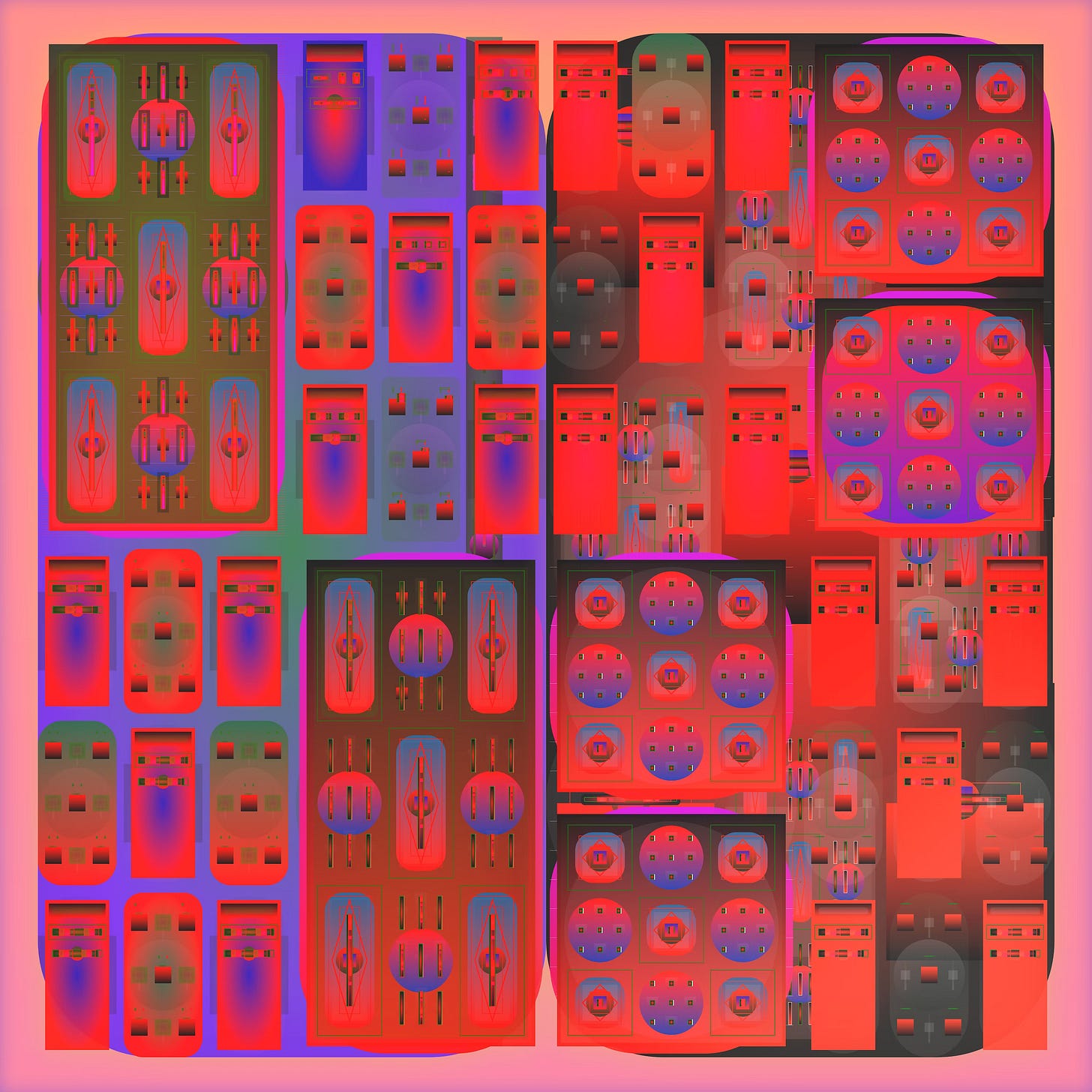📝 Web3 Field Notes #13
Shopify enters Web3; The state of US crypto policy; NY Fashion Week and Web3; Democratization of art; Polygon on a roll; Microsoft exits the metaverse; New start-ups & more.
“Everything in flux. And you too will alter in the whirl and perish, and the world as well.” – Marcus Aurelius
📚 Readings:
Storing value in digital objects. Must read. Link
The rise of user generated content 2.0. Link
Bloomberg: The SEC cracks down on crypto: Kraken and staking, Paxos and BUSD, and taxes and yachts. Brilliant piece by Matt Levine. Link
The state of crypto policy in the US. Link
Blockbrain: State of crypto, January edition. Link
New York Fashion Week and Web3. The hype quiets. Link
The co-founder of Yuga Labs, Wylie Aronow, on BAYC and nazi accusations. Link
🚨 What caught my eyes:
Bitcoin addresses with a non-zero balance have hit a record 44M. Link
Shopify merchants can now use “tokengating” tools to create tokengated experiences for their communities, such as exclusive products, NFT drops and other benefits. Over 4.4 million e-commerce sites are built with Shopify, totalling 10% of the global e-commerce market. We’ve just witnessed another step towards NFT mass adoption. Link
Paris's Centre Pompidou acquired 18 NFTs, including a CryptoPunk, so did the Los Angeles County Museum of Art (LACMA). The Founder of ArtBlocks is on point: “In what feels like a solid win towards a general democratization of art, […] more than 10,000 art appreciators now own artworks from collections and artists held by world class art institutions than before.” So true. Link
Polygon announced the launch of its zkEVM mainnet beta for March 27. This is a giant milestone for the future of scaling Ethereum, as it will reduce transaction costs and massively increase throughput, while maintaining the security of Ethereum L1. This will also be the first zero-knowledge (ZK) scaling solution that is fully compatible with Ethereum. Other major players in this realm are Scroll, and zkSync, with others like ConsenSys and Taiko. None of these solutions have gone live with a completely open and permissionless mainnet. Link
zkEVM… what? A zkEVM is a virtual machine that runs on the Ethereum network and helps verify the correctness of smart contracts (programs stored on a blockchain) using zero-knowledge proofs (ZKP). A ZKP is a way of proving that a data is true without revealing any extra information. Through its compatibility with the EVM, it marries the immense scalability of zk-rollups with the network effects of Ethereum.
Polygon is on a roll: January 2023 saw Polygon’s proof-of-stake (PoS) monthly active addresses grow 23% month over month, and 155% year over year. Its PoS revenues hit $1.58m. Weekly network revenues have nearly 5x’d in the last month and a half (mostly due to increasd gas prices). Its NFT ecosystem saw a massive surge in transaction volume in the last three months. Of the entire worldwide blockchain economy, Polygon has the third-largest ecosystem for decentralized apps (dApps). Will it become the go-to chain for future brand NFTs? I will cover Polygon’s success in a future article. Stay tuned. Link
PROOF, the company behind Moonbirds and PROOF collective, cancels its first flagship physical community conference “PROOF of conference”, citing “considerably less interest than anticipated”. Being one of the most acclaimed NFT communities, this shows how difficult it is to translate from virtual to physical. Link
Token Terminal introduced financial statements for DAOs. This could become an important building block for building a transparent Web3 economy. Link
Microsoft cut its Metaverse core team after only 4 months in operation, and remains “committed to the industrial metaverse”. However, the majority of the metaverse team was made up of individuals who were part of Project Bonsai — a company that Microsoft acquired in 2018. As such, I wouldn’t put too much weight on this decision. Link
Binance is considering de-listing USDC and other tokens from US projects, ending US partnerships, and closing VC investments. US regulators were caught off-guard by FTX and 2022's other failures, so now they're overcorrecting with harsh enforcement and restrictive rulemaking. Link
🚀 Interesting Web3 start-ups:
Galxe: Build your digital identity with Web3 credentials.
Tokenproof: Token-gating by proving ownership of NFTs without connecting or even carrying a wallet
Bueno: No-code creation of digital collectibles, from generation to mint.
Collab.Land: An automated community management tool that curates membership based on token ownership.
💡Word on the street:
While crypto-finance has come heavily under pressure from US regulators, the Web3/NFT space is alive and thriving.
Four years ago, a large part of the space revolved around Bitcoin and Ethereum (and some Ethereum/L1 competitors, most of which have disappeared by now). In 2020, DeFi came along. In 2021, we experienced the NFT boom.
Novel concepts at the time, they have matured into their own, separate, thriving ecosystems, alongside the more traditional, centralized, (and regulated) crypto-finance space.
This is why I think Web3/NFT builders don't care too much about what happened with FTX.
They just continue to build.
That’s all for now, folks.
Back to building and learning! 🚀
– Marc
📈 Awesome charts to share with friends:






